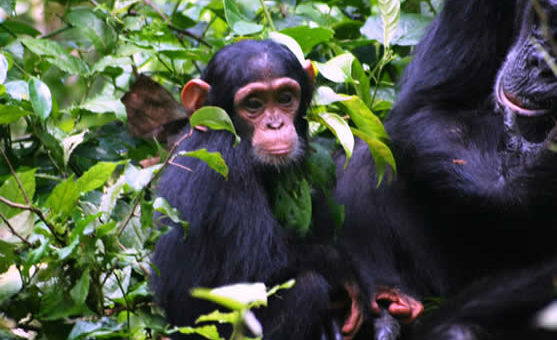It’s a no brainer that since the beginning of time, local communities have been the protectors of wildlife within the ecosystems in which they have their being.
Whether it is the Batwa preserving forests from which they hunted and gathered for survival or the Bakonzo playing guardians of the Rwenzoris that feed numerous rivers, the locals have for centuries been at the helm of wildlife conservation in any given area.
These have always leaned on their cultural heritage ideals, traditions and indigenous knowledge to reinforce their harmonious co-existence with the wild species and keep the ecosystems alive.
However, with the onset and rapid growth of modernity, science and contemporary social dynamics that tend to undermine indigenous knowledge, the conservation sphere today grapples with bizarre human-wildlife conflict incidents that were never heard of when cultural morals and taboos of given communities governed the lands.
As line stakeholders take to paper recommendations for the new Wildlife Management Policy (2025–2034), the Cross-Cultural Foundation of Uganda (CCFU) has released a brief calling for the integration of cultural heritage and indigenous knowledge systems into Uganda’s wildlife policy reforms.
The brief identifies significant gaps in the current 2014 Wildlife Policy, particularly the limited recognition of cultural leaders, heritage sites, and community-based conservation practices.
The brief was disseminated at a national stakeholders’ dialogue held at Onomo Hotel in Kampala yesterday, attended by representatives from government ministries, departments and agencies, civil society organisations, cultural leaders, private forest owners, community members from the Rwenzori and Bunyoro sub-regions, and the media.
According to Ms. Barbra Babweteera, Executive Director of CCFU, sidelining these “custodians of biodiversity conservation” leaves gaps in what should be a multi-pronged, concerted conservation strategy.
“Cultural leaders are frontline custodians of biodiversity conservation. Their exclusion from conservation governance not only threatens ecological sustainability but also undermines systems of identity, belonging, and heritage that have long protected our natural resources,” Babweteera said.
Supported by the Arcus Foundation, CCFU undertook community consultations in the Rwenzori (Kasese and Bunyangabu) and, Bunyoro (Kikuube, Kagadi-Muhooro, Kakumiro) regions with diverse categories of participants, some of whom were present for the dialogue yesterday in Kampala.
These included cultural and religious leaders, representatives of Indigenous Minority Communities (IMGs), clan members, private forest owners, Uganda Wildlife Authority (UWA), National Forestry Authority (NFA), the Ministry of Tourism, Wildlife and Antiquities (MoTWA), and other civil society actors.
According to CCFU, the consultations conducted and the National Stakeholders’ dialogue affirmed the invaluable role of culture in wildlife stewardship and sustainable conservation.
What the Findings Indicate
Key findings highlight a disconnect between conservation and culture.
According to the brief, the findings pointed out loopholes in the current compensation and resettlement models that rarely take into account the cultural and ancestral values of sacred forests and cultural landscapes with utter disregard for their intrinsic value.
“Reliance on market-based compensation alone, and disregard for cultural values, could increase land-related conflicts, undermine conservation trust, and escalate human-wildlife conflict,” the brief warns.
Non-state conservation enthusiasts cited the immense contribution traditional leaders and clan-based taboos make towards protection of species such as chimpanzees which are totems for some clans for example the Abathangyi and Abanyanja clans of Bunyoro.
Private forest owners decried inefficient protection strategies for forests formerly used for ritual and medicinal purposes which now serve as crucial habitats for chimpanzees. These say the forests remain under threat from human commercial ventures like sugarcane growing.
CCFU highlighted the Bakwonga Clan members in Kabwoya, Kikuube District who have protected the Kwonga Forest which is home to numerous wildlife species.
“Kwonga is the only remaining natural forest on private land across six villages in the area, with all other private forests converted to sugarcane plantations.”
CCFU’s Recommendations for Uganda’s Wildlife Policy Reform (2025–2034)
CCFU cites the Emirates Declaration on Culture-Based Climate Action adopted at COP28 which calls for the integration of culture into climate and conservation policies.
“CCFU’s recommendations are in line with this global framework, affirming that environmental conservation and cultural heritage preservation are interdependent, not competing, priorities,” the brief states.
The recommendations include but not limited to; Institutionalizing cultural leadership by officially recognising and engaging cultural leaders in wildlife conservation and governance, Integrating indigenous knowledge systems by aligning conservation strategies with local traditions and community-based models, Developing frameworks that respect the non-monetary and cultural value of heritage sites, Establishing equitable benefit-sharing structures, and Including cultural institutions in benefit-sharing models such as Payment for Ecosystem Services (PES) and community infrastructure development.
CCFU also called for Inclusive Public-Private Partnerships (PPPs) pointing to the establishment of culturally inclusive PPPs to jointly manage wildlife corridors and sacred landscapes.
ALSO READ: Inside Calsaar Cultural Initiative’s Maiden Heritage Awareness Marathon
Culture for Chimps
As one of the organisations championing sustainable financing models for conservation, CCFU conducted research studies (in 2014 and 2018) which confirmed strong linkages between traditional beliefs and conservation practices, especially regarding great apes.
According to Ms. Babweteera, the findings indicated that cultural resources are tied to ancestry, identity, rituals, folklore, and traditional medicine, the basis which henceforth prompted inception of CCFU’s ‘Culture for Chimps’ initiative.
Funded by the Arcus Foundation, the initiative promotes the utilisation of indigenous knowledge systems for chimpanzee conservation, sustainable livelihood options and behavioral change.
“Given that Uganda is clan-based in terms of social governance, we wanted to know how we can capitalize on this system to boost conservation. We researched among the numerous clans on whether there are some that have a chimpanzee as their totem and how they could contribute to conservation. The findings have informed most of the activities we have done over the 2 years,” she said.
She added, “Among the things we have been able to do, we have collaborated with cultural leaders who have since developed communiques and guidelines to help their communities in conservation.”
CCFU specifically mapped out the Abathangyi and Abanyanja clans, who have the chimpanzee as their totem, for conservation skilling. This, according to Ms. Babweteera, interests the clans to take lead in conserving the apes.
The organization emphasizes that incorporating cultural heritage and indigenous knowledge systems in the Wildlife Management Policy 2025 will plug many holes in the wildlife conservation agenda.

